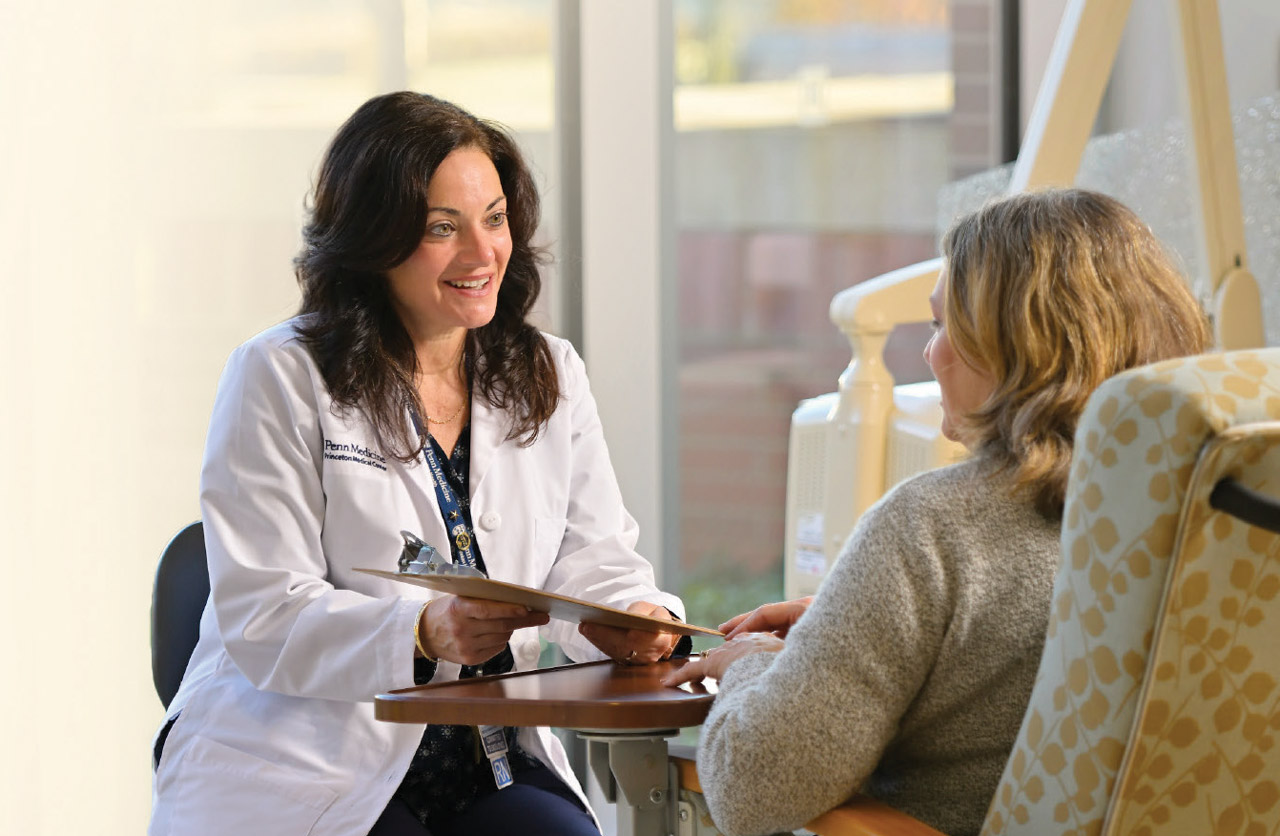 “Clinical trials are the final step in the process of developing new testing and treatments for cancer,” says Noah Goldman, MD, Medical Director of Cancer Programs at Penn Medicine Princeton Medical Center. “There can be any number of trials going on at a given time, so patients have ongoing opportunities to participate.”
“Clinical trials are the final step in the process of developing new testing and treatments for cancer,” says Noah Goldman, MD, Medical Director of Cancer Programs at Penn Medicine Princeton Medical Center. “There can be any number of trials going on at a given time, so patients have ongoing opportunities to participate.”
A misconception people often have when it comes to cancer clinical trials is that participants may be denied some aspect of care. In fact, the opposite is true. “Participating in a clinical trial is a win/win situation,” says Dr. Goldman. “The treatment you receive is as good as or better than the standard of cancer care, so rather than being denied something, you receive added care. In fact, most medical interventions used today are the result of past trials.”
The Benefits Can Be Far Reaching
The primary benefits of participating in clinical trials are twofold, according to Dr. Goldman. “First, you are potentially getting the newest and the greatest treatment to help beat cancer. Second, you are helping work on future advances in cancer care that can benefit others.”
Each trial has certain inclusion and exclusion guidelines, so patients may not qualify for every available trial. Treating physicians usually recommend qualified patients for clinical trials, but it is also a good idea for patients to inquire about what is available and take advantage of the opportunities.
“Patients with cancer already have a lot on their plates when it comes to medical matters, so they may hesitate to sign up for a trial, thinking it will be time consuming,” says Dr. Goldman. “The truth is, on average, participating may simply mean an extra scan or an extra blood draw. These clinical trials do not require a big commitment on the patient’s part, but can have an impact on their care and the future of care.”
For more information on cancer clinical trials at Princeton Medical Center, call 609.853.6786, or visit princetonhcs.org/cancer.

